I am writing to share some exciting news with you about a possible new Global Learning program in Honduras. As many of you know, some of us in the organization have been in communication with Honduran contacts about the promising new program for the last six months and GL Costa Rican Coordinator Roberto Vargas Sanchez and I have just returned from an on-site exploratory visit. I am happy to report that this new location potentially provides an incredible opportunity for growth for us as an organization, particularly with regard to teacher training, parent outreach, and depth of connection with individual students.
If plans go ahead, GL volunteers would be working in communities located in and around a Cuero y Salado Wildlife Refuge, about an hour outside of the town of La Ceiba, on the north coast of Honduras. Once owned by the Standard Fruit Company, it is an unusual program site set in a very remote area rich in natural beauty and community spirit, but challenged by acute educational need, material shortages, and socio-economic hardship.
This message is to inform you about some of the details of the possible new program (including challenges and opportunities) and to request your opinion and collaboration. The decision about whether or not to expand to Honduras will be made by October 15. Please read on to learn how you can express your voice. A crucial piece of the decision making process will be whether we have enough experienced volunteer staff to guide our existing programs along with a new one in 2009. Many of you have expressed tremendous excitement over possibilities of Global Learning expansion. Now is your opportunity reinvest in our organization and help us move forward.
A New Type of GL Program Serving Children, Parents, and Teachers
During the recent site visit, Roberto and I were inspired by the potential that exists for a new kind of GL program in Honduras. Because we would be working with a much smaller number of students (less than 200, as opposed to the 800-1000 students in other GL programs), there would be time and resources to create a three-pronged holistic program that serves children, their parents, and their teachers.
As in other GL programs, children would be reached through our school enrichment model with local and foreign volunteers serving as role models as they teach innovative, student-centered curricula in classrooms. There are four universities in the town of La Ceiba, and university students have vacation time that would fall during a July GL program. Hence, finding local volunteers is probably only a matter of recruiting and our strong contacts at the universities are confident that in-class visits and open house meetings would be successful there. Foreign volunteers would come from the broader international community, including hopefully experienced volunteers from our other Central American program sites in Nicaragua and Costa Rica.
Seeing parents as first teachers, the new program would provide home visits and school-based classes for parents in order to help them better support their children’s cognitive development, decision-making abilities, and academic preparation at home. Of course, this parent education would be designed with the context in mind. Based on GL’s current student-centered education training, some aspects of Nurturing Parenting (I trained with them last year), and the research on educational innovation that we’ll be doing this year with the help of the Steven’s Traveling Fellowship, the parent training in the new GL program would be tailored to parents with limited formal education, few material resources, and a strong desire to help prepare their children for life.
Teacher workshops would be the third piece of the Honduran GL program. Last week in Honduras, Roberto and I visited one room schools in which traditional frontal instruction (including very authoritative delivery and corporal punishment) is the norm, but we were touched by teachers doing the best they can with limited training and severe supply deficiencies in very challenging circumstances. They want to learn more and improve as educators. Hence, the Honduran GL program would be a prime spot to expand and develop one of the newer areas of GL programming: teacher workshops.
A Wilderness Context
In addition to the opportunities that exist in the Honduran site with respect to school enrichment, parent education, and teacher training, the context itself would provide Global Learning volunteers the opportunity to stretch and grow because the program would be held in the Cuero y Salado Wildlife Refuge. The challenge and beauty of the natural environment in the refuge would surely encourage team bonding, help open minds, and facilitate the crossing of socially constructed cultural, racial, national, and gender boundaries.
Despite its relatively short geographic distance to the city of La Ceiba (only about 20 miles), Cuero y Salado Wildlife Refuge feels remote because it is not accessible by car (only by boat or small train). The refuge forms a triangle encompassed by the Cuero and Salado rivers and the Caribbean coast, comprises a little over 82 square miles, and was designated a protected area in 1986 because of its endangered manatee population, as well as the complex series of saltwater and freshwater wetlands it contains. If this site is selected to host a GL program, volunteers would divide their time in different parts of the refuge in order to work with various communities within and around the park.
For most of the program, volunteers would live communally in a house borrowed from the Fundación Cuero y Salado (FUSCA) in the center of the refuge that provides ample space for volunteers’ living and working needs (great meeting spaces!), but does not have electricity. Volunteers would travel to and from school by small boat, a tiny train, or on the “burra” (a cart that is human-powered and pushed along railroad tracks left by the fruit company). While living in the house, the team would teach in the communities of Salado, Ceiba Mocha, and La Union. For at least one week of the program, the volunteer team would camp in tents borrowed from FUSCA in a more remote part of the refuge (only accessible by boat) in order to reach students in the community of Cuero.
Alliances with Honduran NGOs
If Global Learning chooses to expand to Honduras, there will be ample opportunity to collaborate with other nongovernmental organizations (NGOs) in the La Ceiba area. In particular, GL would form an alliance with two environmental organizations doing good work in the Cuero y Salado Wildlife Refuge: Fundación Cuero y Salado (FUSCA) and USAID/MIRA (Proyecto Manejo Integrado de Recursos Ambientales). As mentioned, FUSCA would donate housing if this new program goes forward and leaders of both organizations would help to organize volunteer transportation, assist in recruiting local volunteers, contribute locally relevant content to GL’s environmental education lessons, and provide logistical support.
Challenges
Of course, all Global Learning programs have challenges. As our organizational philosophy reminds us, these challenges are also opportunities. This new possible program in Honduras is no exception. Here are a few of the challenges that Roberto and I noted while on-site:
- Lack of electricity. Certainly, this challenge provides an incredible opportunity for teamwork, flexibility, and simplicity on a program. But, it is hard to store food for a volunteer team without refrigeration. This will create some hurdles related to food. It looks like we would be able to transport nonperishable food in by boat, pay some entrepreneurial local women to supplement what volunteers can cook for themselves, and perhaps rent space in a refrigerator outside of the volunteer house. But, our food costs may be higher than normal in this rural new program.
- Limited transportation options. Because of the remote context, transportation to the work site is fairly limited and relatively expensive. The opportunities embedded in this challenge include chances to be very creative, flexible, and athletic. (Volunteers could build muscles pushing the burra!) The good news is that we could probably borrow a truck from MIRA to get to the boat launch and/or train departure point and FUSCA is willing to help us arrange the most economically feasible transportation options available once inside the refuge.
- Smaller volunteer team. On this site, it may make sense to have a slightly smaller than normal volunteer team (i.e. in the range of 10 to 14 people instead of 18 to 22). This challenge holds many opportunities related to team unity, logistical ease, training possibilities, and initiative. However, with fewer volunteers and the financial aspects of the first two challenges presented above, there will be greater pressure on individual members to fundraise and look for in-kind donations. This being said, housing, communication, and fieldtrip costs will probably be lower than in other GL programs. A small, but hardworking team could certainly raise the money needed to fund this new program.
- A remote wilderness setting. As stated previously, this new program would be held in a wildlife refuge. Bugs, animals, tropical heat, and other natural challenges will surely be part of volunteers’ daily routine. Of course, this challenge holds an incredible amount of opportunity with regard to personal growth, team unity, boundary crossing, learning, and humor. Nonetheless, it will be very important to select volunteers ready for the challenge. Flexibility, always an important characteristic for GL volunteers, will be paramount on this team. It will also be important to have at least a few volunteers on the team who have wilderness first responder medical training.
The Next Steps
Firstly, we need your ideas, doubts, questions, and suggestions. Please contribute them on the GL Blog (www.glinternational.blogspot.com) or email me at aprendizaje_global@yahoo.com. The decision of whether or not to expand to Honduras will be made by October 15. Coordinators from all existing sites and the GL Board of Directors will vote, assisted by input from all volunteers. Please make your voice heard.
Secondly, if the general consensus is in favor of the new project in Honduras, we need enough experienced volunteers to commit to returning in 2009 to ensure that we can run our existing programs and staff a new one. We need coordinators and support people in Nicaragua, Costa Rica, and Mexico. And, of course, an experienced crew in Honduras too. Are you willing to reinvest in GL and help guide one of the upcoming teams? Can you commit by October 15? With your help, we will have an exciting season of creativity and teamwork, starting with an “innovation week” in early June, leadership training at the end of June for all program guides (coordinators and SPs), and then the programs will run in July/beginning of August. (There is a chance that the Honduras program could run in August, but our other programs will run from approximately July 3 through August 2.) If you want to be involved, please email me at aprendizaje_global@yahoo.com or call 707-365-3287. (If you are outside of the U.S. and want to talk on the phone, please just let me know and I will call you.)
Thank you for your insight and cooperation. I am looking forward to hearing from you.
With respect, gratitude, and cariño,
Jana





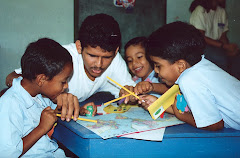


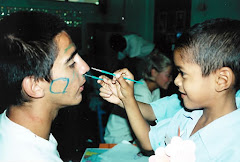
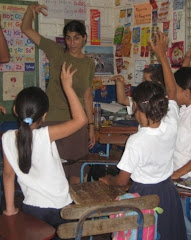
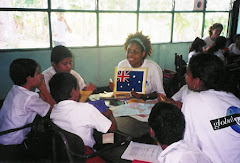
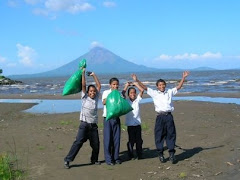
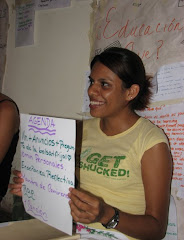


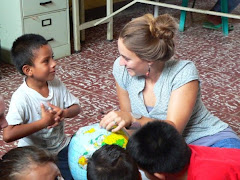
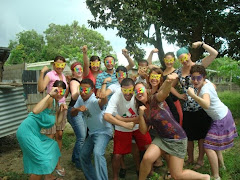

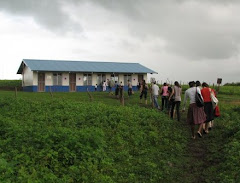


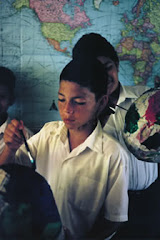
1 comment:
Sounds like a great idea. I would have loved to do this Honduras trip back in the day.
The blog is a great idea too. It's nice to be able to follow along with GL.It was a long time ago, but I still miss it.
Post a Comment